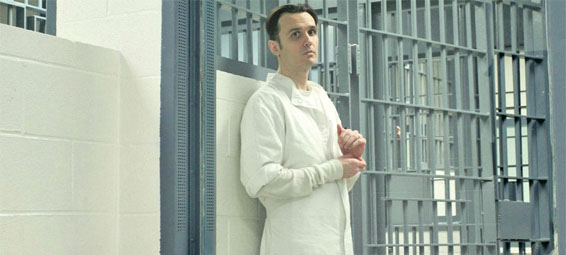Amy Berg’s documentary West of Memphis is the fourth film about the case of the West Memphis Three, three teenage boys whose love of heavy metal and occult curiosity landed them on death row accused of brutally killing three little boys. The prior three films, the Paradise Lost-series by Joe Berlinger and Bruce Sinofsky, introduced the case to America and then tried to advocate for their release. They succeeded in proving the boys’ innocence beyond reasonable doubt, but never quite made a convincing-enough case for the culpability of other suspects. Perhaps more significantly, those three movies turned the West Memphis Three into media darlings, winning support from rock stars, actors, and filmmakers who identified with their story: loners and social outcast whose intelligence and creative disposition put them at odds with their provincial small town existence.
What sets Berg’s film apart from these previous films about the 1993 murders and the subsequent conviction of the three teenagers is that it is the product of a years-long private investigation into the crime. Largely funded by Lord of the Rings filmmaker Peter Jackson, that investigation churned up new DNA, new testimonies, and startling confessional revelations. By the end, we are not merely convinced that the boys should never have been locked up and that they were the victims of collusion and fraud on the part the local police and district attorney, but we also have a pretty good idea who actually perpetrated the crimes.
That should bring satisfaction and closure to the ordeal, but the opposite is true. When the West Memphis Tree were finally released in late 2011, it was do to a legal technicality. According to the State of Arkansas, they are still guilty of the murders and the real killer still roams free. The likelihood of ever retrying the case or putting the murderer on trial is more or less nothing. The boys (now men) are free, but the wheels of justice have not been set right.
There are silver linings. One of the three, Damien Echols, met his wife while in jail. Remarkably, he also educated himself while in prison and is now an incredibly articulate and moving speaker and writer. His intelligence shines in the new film. And the celebrities that were attracted to this story have also helped at least two of the tree boys ease the transition from death row to the rest of their lives.
But a shadow still lingers. We can’t shake the realization that in many ways the camera created this story line, that if no one ever made a movie about the case the wrongfully accused would still be sitting on death row. There is also the uncomfortable realization that it was because these three boys were white rock-and-roll fans that so many celebrities were attracted to the case. Otherwise we would know nothing of their story, just as we know nothing of the countless others still sitting in jail with no hope, their lives stolen by a vicious and gravely flawed judicial system.





